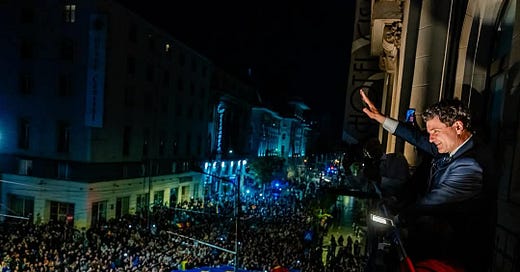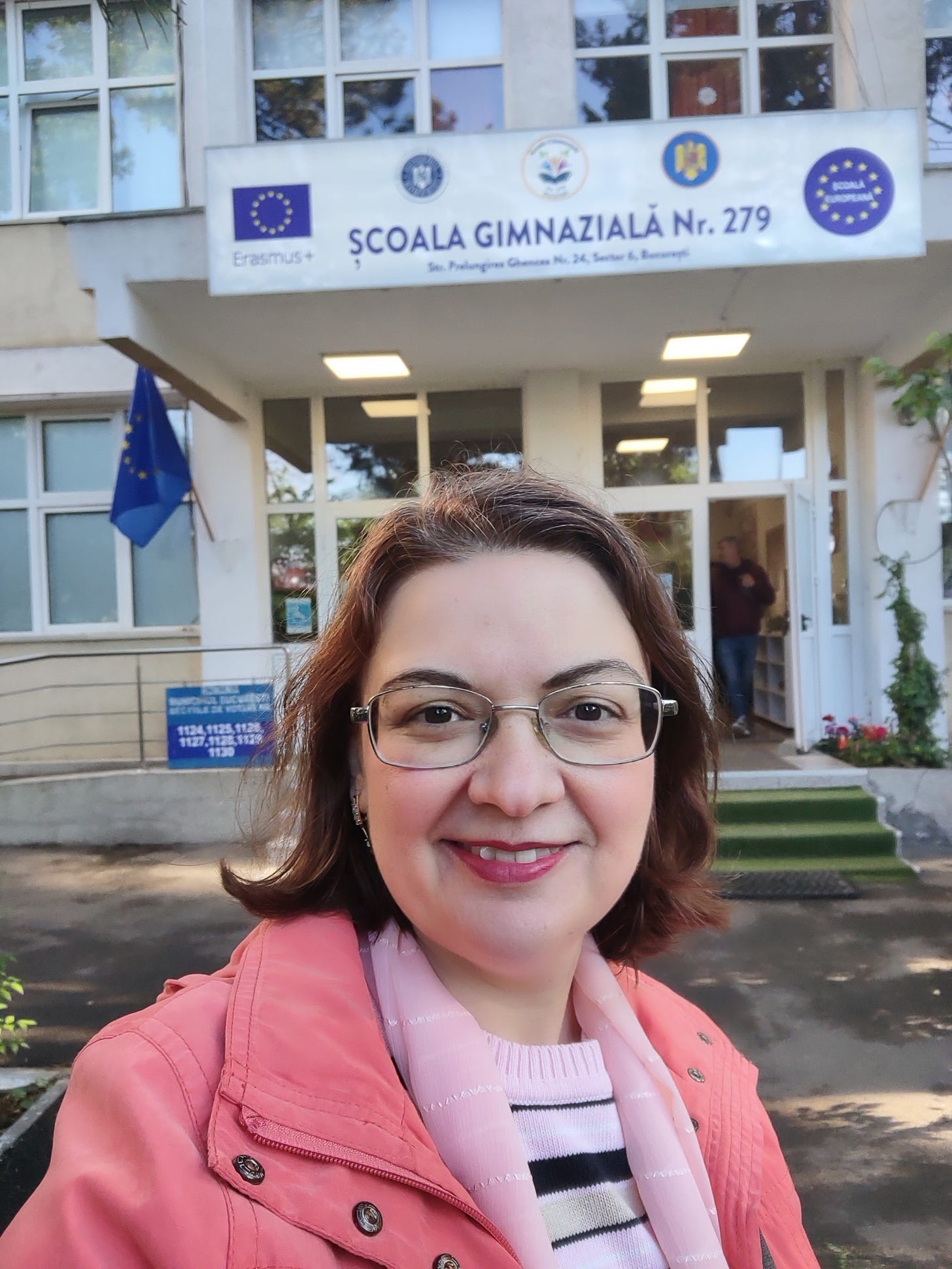Romania at the Crossroads: A Victory for Democracy
A Sigh of Relief throughout Europe After the Romanian Presidential Elections
After 6 months of turmoil – marked by Russian interference and propaganda, cancelling a presidential election, social division, and fears for the country’s democratic backsliding – Romania’s democracy has bounced back. The Romanian voters handed a decisive victory to the pro-West democratic independent centrist candidate Nicusor Dan and rejected the nationalist extremist George Simion, who leads AUR, a far-right political party.
I am in Romania these days, and, for the first time in many politically tough months, I am more optimistic for the future of democracy not just in Europe but globally.
Here are some hot takeaways on the results of the Romanian presidential elections and their implications for security and democracy in Europe.
1. The independent mayor of Bucharest managed to overcome a 20% gap (1,9 million votes), as resulted from the first round.
On May 4th, Simion won almost 41% of the votes, while Nicusor Dan had 21%. This is the biggest comeback in Romanian post-communist history, and it was fueled by a significant increase in turnout and by the big cities. In the end, the margin exceeded expectations (approx. 7% - 53,6% for Nicusor Dan vs. 46,4% for Simion). The turnout went up from 53% in the first round to almost 65% in the runoff, amounting for 2,1 million votes more.
2. This election is a victory of the pro-European sentiment in the country and of democracy.
The campaign was framed, especially in the last two weeks, around Romania’s place in Europe, pro-EU vs anti-EU, West vs. East. George Simion parroted anti-Western Kremlin messages, declared he would stop not only the aid for Ukraine, but also for the Republic of Moldova (Romania’s sister country).
The momentum started to shift especially during the last days when it became clear what political and economic disaster would result from voting for an isolationist. Moreover, George Simion skipped all the presidential debates and started a “far-right” tour in Europe. In France, he embarrassed himself on a national television, attacking directly Emmanuel Macron, and the entire French nation. This didn’t bode well with a lot of Romanians who cherish the historical relationship to France and who were appalled by Simion’s aggressive behavior.
3. The anti-incumbent wave seen last year continued.
The elections were a rebuke against the traditional political parties. The coalition government parties (social – democrats, liberals, and Hungarian minority party) were not able to carry their candidate into the runoff. Both candidates who made it into the runoff were “change” candidates and to some extent “anti-system.” However, in the runoff, the liberal voters and the Hungarian minority played a significant role for Nicusor Dan.
4. The extremist tried the familiar playbook of proclaiming himself president in advance, but eventually conceded.
Despite the early exit polls anticipating a clear victory for Nicusor Dan, Simion went out to the media declaring he won the elections. His party was ready with a strategy to challenge the election results and even organize street protests. Fortunately, it didn’t play out. He eventually recorded a message conceding.
5. This is a big win for the EU, for the relationship with Ukraine and with the Republic of Moldova.
As the victory became clearer, thousands of Romanians took to the streets to celebrate. One of their chants was, at some point, “Russia, don’t forget, Romania doesn’t belong to you”.
Simion’s win would have posed an enormous threat not just for Romania’s security, but for the whole security architecture in the region, for supporting Ukraine, and for the entire European construct. Simion is banned from entering Ukraine and the Republic of Moldova, who accused him of ties with Russian intelligence, and he was already trying to alienate Romania from its traditional European allies.
Romania is a critical ally on NATO’s Eastern Flank. It is the biggest supporter and contributor to the Republic of Moldova and its European aspirations, and has played a major role as a hub for the military and humanitarian support for Ukraine, and for the transit of Ukrainian grains in the Black Sea. Romania is indispensable for security at the Eastern border of NATO, and for the war effort in Ukraine. Without it, the Republic of Moldova would have been left vulnerable and at risk.
The map below is relevant for how important it was to keep Romania on the “right side of history” with its democratic European allies.
Elections can produce waves. What happened in Romania is even more important in our interconnected world. Poland also had elections on Sunday and is facing a similar scenario. The pro-Western democratic mayor of Warsaw, Rafał Trzaskowski, supported by the Civic Platform, narrowly won the first presidential round and will be facing a right-wing populist opponent, Karol Nawrocki (Law and Justice party) in two weeks. The Republic of Moldova has parliamentary elections in September. With Romania now clear on its democratic path, there can be a positive momentum in the region.
The next days and weeks will not be easy. Romania needs a new government fast (currently operating with a transitional, ad interim one), it needs to tackle a big deficit and high inflation, as well as the underlying social division and frustration with the establishment. But for now, it stepped away from the brink.
Here I am in front of the polling station on Sunday morning, May 18. I could already see the good signs and the momentum






